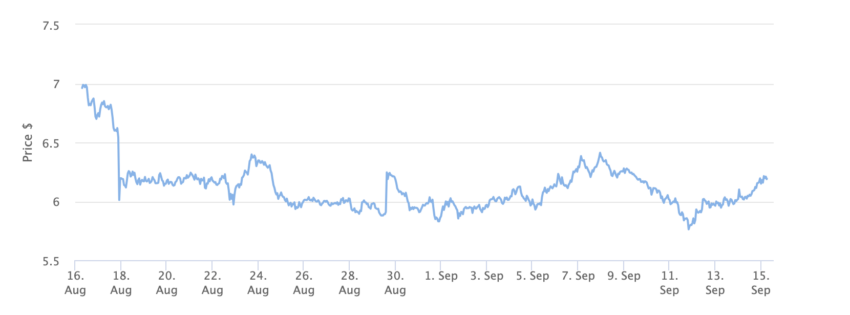[ad_1]
One of Australia’s major banks, the Australia and New Zealand Banking Group (ANZ), recently announced its adoption of Chainlink’s cross-chain interoperability protocol (CCIP) for simulating tokenized asset purchases.
“ANZ recently worked with Chainlink CCIP to complete a test transaction to simulate the purchase of a tokenized asset, facilitated using A$DC and an ANZ-issued NZ-dollar-denominated stablecoin,” the statement declared.
Institutional Investors’ Rising Confidence In Tokenized Assets
In a recent statement, ANZ Portfolio Lead Nigel Dobson explains that it is exploring the use of decentralized networks. He further notes that the bank is taking the ‘test-and-learn’ approach.
He acknowledges the growing support from institutional investors who have confidence in the future of tokenized assets.
“Banks are increasingly exploring use cases involving tokenized assets, with 93 per cent of institutional investors believing in their long-term value, according to a recent EY report.”
Dobson highlights that the early stage of development has led to the dispersion of assets and services across various blockchains. He believes a smoother operation will require some work.
However, Dobson suggests that Chainlink’s Cross-Chain Interoperability Protocol (CCIP) could offer a solution to this. He explains that serving as the blockchain interoperability standard, it enables financial institutions to link various blockchain networks.
ANZ partnered with Chainlink CCIP for a test transaction. Subsequently, this demonstrated a secure cross-chain settlement of tokenized assets using A$DC and ANZ’s NZ-dollar stablecoin.

Australian Banks Embrace Digital Assets
Dobson highlights that connecting existing blockchain networks is “critical” for mass adoption.
“This new on-chain financial operating model is currently highly fragmented. With assets and services siloed across different blockchains that don’t always immediately work well together,” Dobson states.
In recent times, Australian banks have been actively exploring decentralized networks and stablecoins. On January 19, National Australia Bank (NAB), a rival major bank to ANZ, developed a stablecoin named AUDN. The stablecoin is based on the Ethereum network and is tied 1:1 with the Australian dollar (AUD).
Meanwhile, the Commonwealth Bank of Australia (CBA) adopted a more cautious approach to cryptocurrency, following its initial advocacy.
In May 2022, CBA decided to halt the launch of a crypto services app amid the ongoing crypto winter. CBA made history as the first Australian bank to announce crypto services.
However, CEO Matt Comyn noted the bank’s commitment to gathering additional customer feedback and awaiting regulatory clarity before rolling out the product.
Disclaimer
In adherence to the Trust Project guidelines, BeInCrypto is committed to unbiased, transparent reporting. This news article aims to provide accurate, timely information. However, readers are advised to verify facts independently and consult with a professional before making any decisions based on this content.
[ad_2]
Source link



